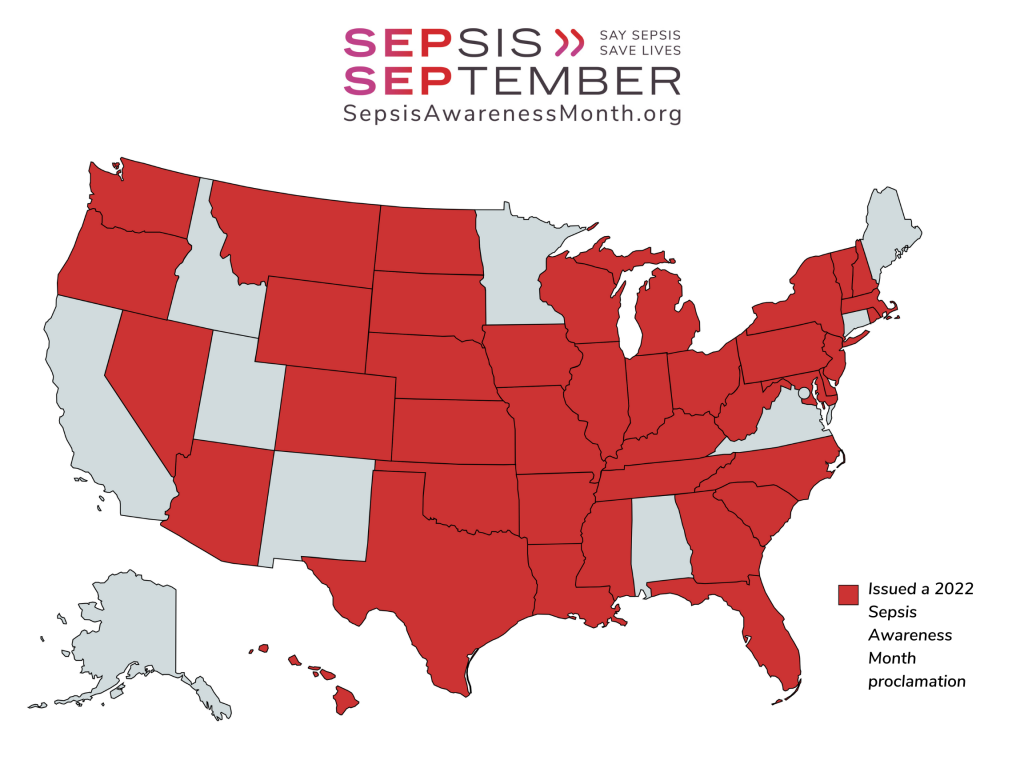Below, learn about the advocacy and policy work that Sepsis Alliance has recently undertaken.
Below, learn about the advocacy and policy work that Sepsis Alliance has recently undertaken.
The National Sepsis Data Trust, Research, Outcomes, and Innovation Act – S.4827 (Cassidy, Casey) / H.R.8865 (Sherrill), or “Lulu’s Law” – is a bipartisan, bicameral piece of proposed legislation that has recently been introduced in Congress. Lulu’s Law would authorize the establishment of a national sepsis data trust, to be housed within the Department of Health and Human Services. It would also enable states to launch sepsis data pilot programs to eventually feed into the trust.
Ana Lucía “Lulu” Haynes was a four-year-old from Montclair, New Jersey, who passed away suddenly from sepsis in 2014. She was known to her family and friends for her sweet, spunky, and bright personality. This Congressional bill has been named in her honor.
A data trust is a hub of information that can help experts – clinicians, researchers, innovators, public health officials, and others – to better understand a condition like sepsis. There is currently no central hub for sepsis-related information like there is for cancer, which means we are limited in our ability to understand sepsis – a condition that impacts 1.7 million people in the U.S. every year. By establishing this data trust, Lulu’s Law will help us learn about sepsis and, therefore, improve diagnosis, treatment, and innovation. Good data can save lives.
Sepsis Alliance was instrumental in bringing this bill forward to Congress and continues to champion its passage. You can get involved by contacting your Congressional representatives here.
For more information on Lulu’s Law, contact Kristin DeVries, Sepsis Alliance’s Director of Policy and Advocacy: kdevries@sepsis.org.
The Severe Sepsis and Septic Shock Early Management Bundle, also known as NQF #500 or “SEP-1,” lays out a process for healthcare professionals in hospitals to follow for patients with severe sepsis. Since the 2000s, SEP-1 has been approved by both the Centers for Medicare and Medicaid Services (CMS) and the National Quality Forum (NQF). NQF, an organization that works to ensure patient protections and overall healthcare quality, first endorsed SEP-1 back in 2008 and has re-endorsed it in regular review processes every three years since. However, in recent years, some groups have lobbied NQF to consider removing SEP-1’s endorsement, and in early 2022, these opponents submitted an official appeal of NQF’s endorsement of SEP-1.
In April 2022, NQF voted to dismiss that appeal. Sepsis Alliance was heavily involved in the review and appeals process for SEP-1, advocating strongly on its behalf. You can read more about SEP-1 and Sepsis Alliance’s advocacy for its continued endorsement here.
September is Sepsis Awareness Month, an annual opportunity for individuals, healthcare professionals in every area of medicine, and organizations big and small to help save lives by raising awareness of the leading cause of death in U.S. hospitals – sepsis. Each year, Sepsis Alliance Voices encourages advocates to ask their governors to declare Sepsis Awareness Month at the state level. The resulting Sepsis Awareness Month proclamations help to shine light on a deadly condition that one-third of U.S. adults are not aware of.
Last year’s Sepsis Awareness Month proclamation campaign was the most successful one yet: 40 states issued proclamations in 2022 alone! Check the map below to see if your state participated in the observance last year, and check back for information on how to get involved in 2023!

The PASTEUR Act is a piece of federal legislation that seeks to slow and stop the growing problem of antimicrobial resistance (AMR). AMR occurs when specific strains of bacteria, viruses, fungi, or parasites that make people sick evolve in order to avoid the antimicrobial medicines designed to treat them. PASTEUR would work to combat AMR by encouraging the development of new drugs and protecting the ones we already have, ensuring that medications continue to work effectively against infectious germs. The PASTEUR Act is currently pending reintroduction in the 119th Congress.
Sepsis Alliance supports this bill and has taken numerous actions in support of it, including:
Sepsis Alliance is committed to fostering equity, diversity, and inclusion (EDI) in its work and in the sepsis care community. The organization has made efforts to prioritize EDI in every aspect of its own work via its organizational pledge, enacted in 2020. The pledge includes guiding priorities such as:
You can read more about Sepsis Alliance’s organizational EDI work here.
Learn more about the health sector EDI pledge, including signatory requirements, by clicking here.